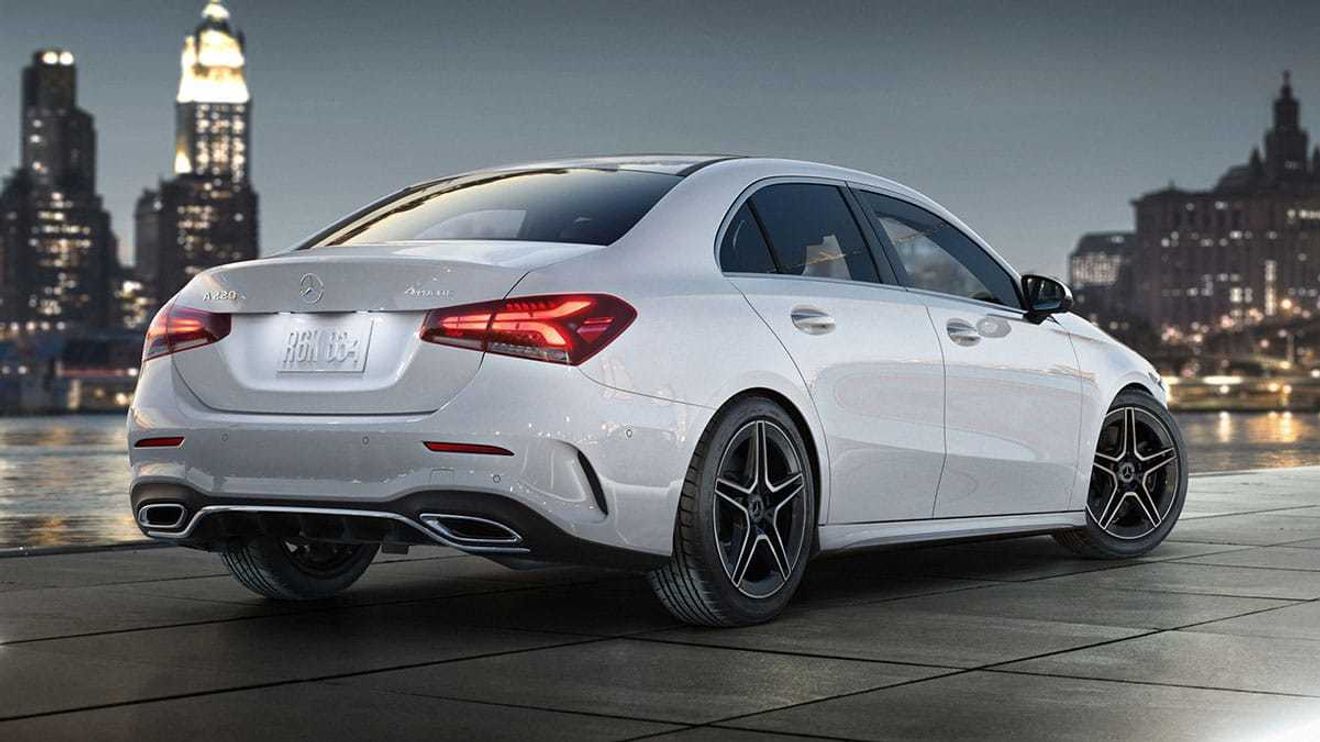Even in the best of times, there’s turnover in vehicle models from year to year, with new models arriving on the scene to replace older ones reaching retirement age. The wild years of the 2020s haven’t exactly been the best of times, especially for sedans, as the writing that was once on the wall is now becoming a reality: Sedans are dying off and being replaced by SUVs and crossovers.
While the preference for SUVs has only grown over the past decade, this year sees the end of some remarkable sedan nameplates. Even so, not all sedans are dying, and not all the cars that are dying are sedans. Whether it’s a sedan or crossover, if a model that suits your taste is on the chopping block this year, now might be a great time to find a bargain. Here is our list of 10 cars, SUVs, and crossovers that won’t see a new version after their current model year ends.
Chevrolet Spark
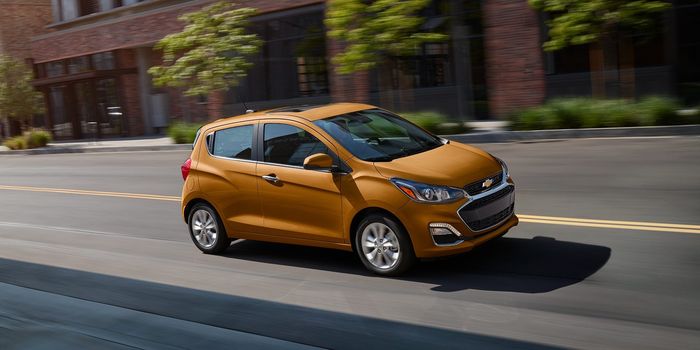
The Chevy Spark: Lights out
Chevrolet
Not a sedan, but not a crossover either, the Chevrolet Spark was the brand’s smallest, least expensive car. Although equipped with standard Apple
AAPL,
CarPlay and Android Auto, easy on gas, and easy to maneuver and park, the Spark was also underpowered, under-equipped in base form, and only offered driver assistance features with the top trim level.
Infiniti Q60
The Infiniti Q60 checks so many cancellation boxes, it’s a miracle it made it this far. As a coupe, it’s even more out of favor with the mainstream market than a sedan would be, and doubly so as a luxury-sports coupe. The fact that the Q60 was a gorgeous, fun-to-drive, well-equipped vehicle, as well as a compact coupe, is beside the point; if it doesn’t ride high and look chunky, America apparently doesn’t want it.
A must read: This Lay’s x Balenciaga potato chip bag reportedly costs $1,800. Who’s biting?
Hyundai Accent
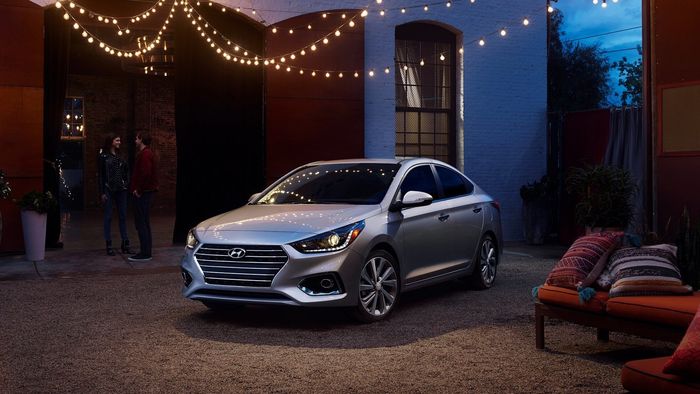
The Hyundai Accent
Hyundai
There’s a theme to the cancellations again this year, and it’s Kill All Sedans, apparently. The 2022 Hyundai Accent will be the last of its name, despite being very affordable, fuel efficient, spacious for its size, and packed with easy-to-use tech. The Accent’s primary shortcomings were once its assets. In a market where bigger is always better, smaller is often worse, and the Accent’s small footprint was matched by a small trunk and underwhelming power from its 1.6-liter 4-cylinder engine. Hyundai
HYMTF,
thinks the Venue subcompact crossover will absorb the customers that would have bought the Accent.
Buick Encore
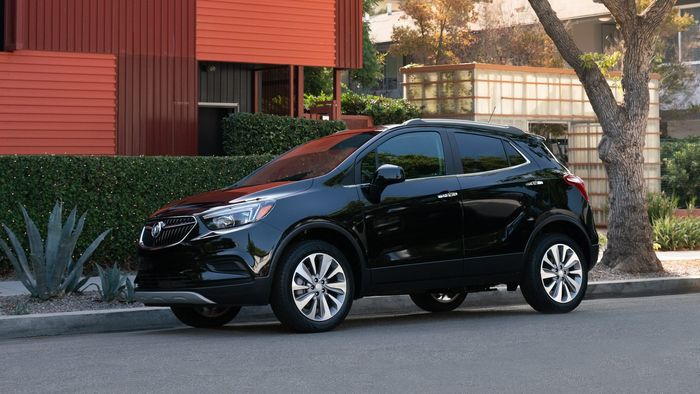
The Buick Encore takes its final bow.
Buick
Wait a second. The Buick Encore is a crossover! If crossovers are so popular, why is this one being canceled? Probably because it’s too small — the slightly larger, somewhat newer, similarly named Encore GX has proved more popular than the Encore, which was Buick’s smallest vehicle. Based on the Chevrolet Trax, the Encore’s look and feel was almost premium, but not quite, and the “not quite” part of that phrase didn’t help the Encore win fans, either.
Ford EcoSport
The Ford
F,
EcoSport had some pluses — things like standard all-wheel drive, a large cargo area, and a low starting price — but there were plenty of downsides, too. This subcompact SUV did not have the fuel economy or modern features that would have kept it competitive with its rivals. It was smaller inside than other subcompact SUVs, and the base model was downright spartan.
Mercedes-Benz A-Class
Continuing the “SUVs good, 4-doors bad” theme, the 2022 Mercedes-Benz A-Class is the last of its kind. Despite engaging driving dynamics, lots of technology, and an upscale look and feel for a nearly mainstream price, the A-Class’ 3-box body shape has also done it in. The small trunk and tight back seat certainly didn’t help its case, nor did the awkward, sometimes clunky shifts from the transmission.
Volkswagen Passat
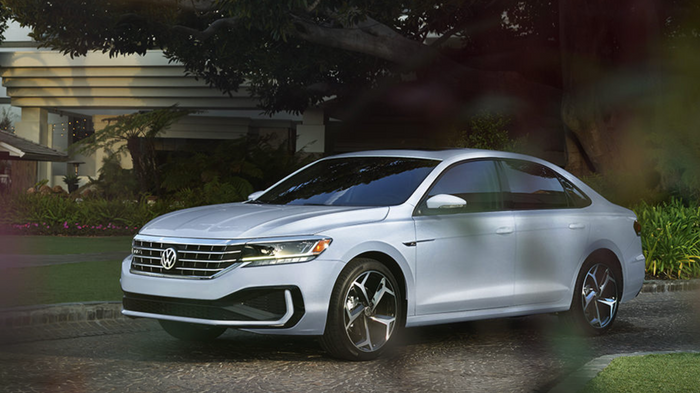
The VW Passat
Volkswagen
The Volkswagen Passat’s midsize balance of size and efficiency was finely tuned for the American market — so much so that the U.S. received its own specification of Passat, built in VW’s
VWAGY,
Chattanooga, Tennessee, plant. Despite its spacious interior, sizable trunk, and ample standard safety features, the Passat failed to retain its fanbase in the face of the crossover onslaught, especially with weaknesses like no available all-wheel drive and underwhelming performance.
Honda Insight

The Honda Insight
Honda
As Honda’s
HMC,
dedicated hybrid model, the Honda Insight never quite rose to the challenge of competing with the Toyota Prius, in part because it arrived on the scene far too late. Now it’s being replaced by the car that preceded it — a hybrid version of the Civic. Despite the poor timing and sedan body style, the Insight did have some strengths, like a comfortable, spacious cabin and up to 55 mpg around town. It also had weaknesses, like a noisy engine under heavy acceleration, a lack of driving dynamics, and limited trim and feature options.
Acura ILX
Although it was a remarkable value, with agile handling and solid safety features, the 2022 Acura ILX was also a sedan. This year that seems to be a leading indicator of a model’s demise. Fortunately, for fans of Acura 4-doors, the ILX’s death comes just after the rebirth of an Acura icon — the 2023 Integra. Without the Integra’s inherent sporting abilities and name recognition, the ILX’s failure isn’t a tremendous surprise, especially in the age of the crossover.
Read next: Finally, new car inventory is up; what it means for car shoppers
Toyota Avalon

The Toyota Avalon
Toyota
Once a name often mentioned near the word “retirement,” the Toyota Avalon grew to become one of the brand’s most luxurious, well-sorted sedan offerings, approaching Lexus levels of quality and comfort. By the end of its run, the Avalon was among the best sedans on sale in the U.S. But being a sedan, even a reasonably large one, is a liability in today’s market. The Avalon is another victim of its form factor, being outsold by crossover and SUV alternatives. But all is not lost for fans of large Toyota
TM,
sedans. The automaker is set to bring its Crown sedan to the U.S. market for 2023.
This story originally ran on KBB.com.
